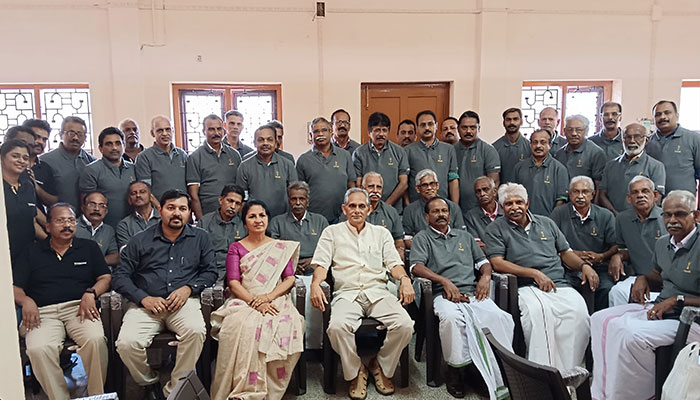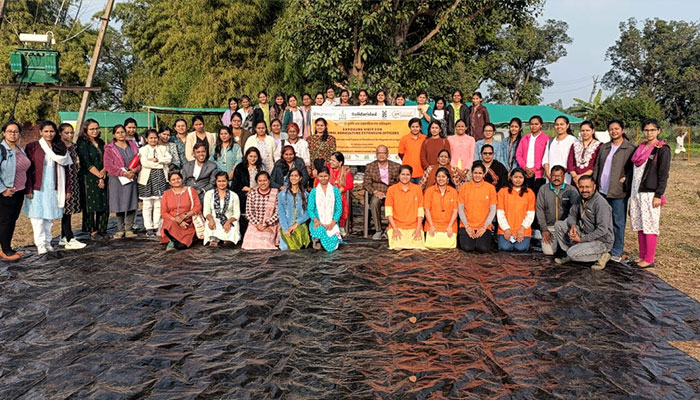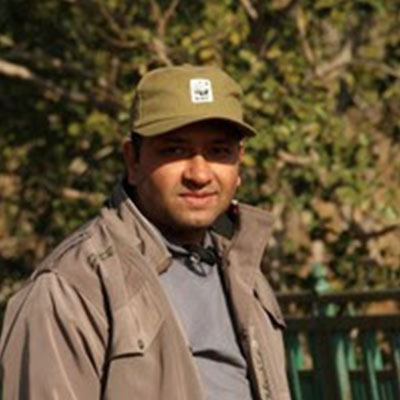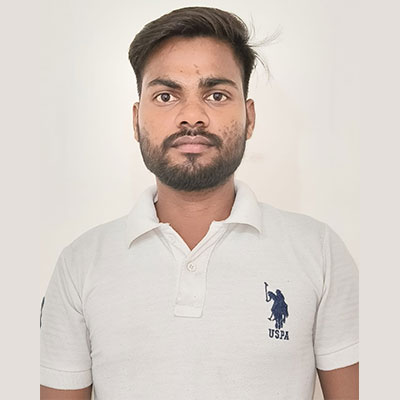Issue/Volume: 14/01

As 2023 draws to a close, we take a look at some important developments and achievements in the final leg of the year. Solidaridad entered a landmark partnership with the Council for Leather Exports aiming to upskill 1.5 lakh workers, a FICCI–Solidaridad conference trained the spotlight on ‘feminisation of supply chain’, and the World Soil Day programmes across different project areas saw small-scale farmers learning about and pleading to adopt regenerative agricultural practices to restore soil health.
Here’s wishing everyone a Happy New Year!

Solidaridad Regional Expertise Centre celebrates 15-year anniversary
Solidaridad Regional Expertise Centre (SREC) completed 15 years of operations in India on 15 December 2023.The occasion was commemorated by a celebratory event with the theme, “Celebrating our Legacy: Embracing the Future: 15 Years of Contribution Towards Change that Matters”, which honoured Solidaridad's efforts in India to build resilient agricultural communities and foster sustainable supply chains. The event started with a welcome note by Monika Khanna, Country Manager, SREC and a keynote address by Shatadru Chattopadhyay, Managing Director, Solidaridad Asia. This was followed by insightful discussions on moving beyond Sustainable Development Goals (SDGs), and navigating the regulatory landscape. The sessions charted a roadmap for the organisation’s future efforts in the face of a constantly evolving agricultural landscape.

Solidaridad–Council For Leather Exports partnership to upskill 1,50,000 workers over next 5 years
In a key development, SREC and the Council For Leather Exports (CLE) which operates under the Ministry of Commerce and Industry, Government of India, entered a strategic partnership to further strengthen the performance of the Indian leather industry in domestic and international markets.
An MoU to this effect was signed on 21 December 2023 for a five-year period, from 1 January 2024 to 31 December 2028. It outlines the collaboration’s commitment to train 150,000 workers over five years, conduct capacity building programmes, and build partnerships with leading leather institutions and leather businesses in the country. The MoU was signed by Sanjay Leekha, Chairman, CLE, and Monika Khanna, Country Manager, SREC.
Through joint efforts, Solidaridad and CLE aim to introduce comprehensive training programmes, facilitate access to cleaner technology, and promote certifications that enrich the skill-set and knowledge-base of those involved in the leather industry. Furthermore, CLE will support training, workshops, engagement with stakeholders, and contribute towards the development and promotion of a leather portal for green and circular leather practices.

FICCI–Solidaridad conference champions the cause of women in agri supply chains
The Conference on Advancing the Role of Women in Agricultural Supply Chains, organised by the Federation of Indian Chambers of Commerce and Industry (FICCI) and Solidaridad, brought forth a plethora of important and insightful perspectives from public- and private-sector experts, gender leads, trainers, scientists, and more, on the need to recognise women’s role in agriculture and connecting them with supply chains. In the event held on 20 December 2023, the participants deliberated on how the female perspective can best be incorporated in the contemporary agricultural sector, and how big companies can take the lead in sourcing from women producers.

A workshop on EU CSDDD and its significance for India’s leather sector
This month, Solidaridad organised a workshop on ‘European Union Corporate Sustainability Due Diligence (EU CSDDD) and Its Significance for the Leather Sector in India’, in Kolkata. The workshop saw the participation of key industry voices from the leather sector in India as well as EU representatives, and focused on raising awareness around the directive and how it could lead to a global shift towards sustainable and ethically-made leather. It was held under the ‘Effective Waste Management and Sustainable Development of the MSME Tanning Companies in the Kolkata Leather Cluster (Bantala)’ project, funded by the European Union under its SWITCH-Asia programme.

Sugarcane farmers receive training on regenerative farming practices
In December, Solidaridad organised a training session for farmers on regenerative agricultural practices in sugarcane farming. It was attended by 280 farmers. The benefits of practices such as trash mulching, gap-filling and stubble-shaving were explained to the participants, in an effort to empower them with the knowledge needed for them to obtain higher yields from the ratoon crop. At the programme, Aditya Panda, Senior Manager, the Coca-Cola Company, was also present — he highlighted the importance of the Regenerative and Resilient Sugarcane Supply Chain Initiative in Maharashtra, which Solidaridad has implemented in collaboration with Dalmia Bharat Sugar and Industries Ltd. and the Coca-Cola Foundation. While appreciating the work done by the team on the field, he also felicitated some progressive farmers who have adopted best practices in their farms.

Cotton crop expert shares valuable lessons on pest and nutrient management
Solidaridad recently conducted a series of training sessions in the villages of Amla Vishweshwar and Jalka Jagtap in Dhamangaon block, Amravati district, Maharashtra. Solidaridad staff along with R.B. Singhandhupe, a retired scientist from the Central Institute of Cotton Research (CICR), provided guidance to farmers on integrated pest- and nutrient-management, cotton-picking and safe storage of cotton. The importance of agroecosystem analysis was explained, whereby farmers make decisions based on field observations during different stages of the crop cycle. Other factors influencing crop health (such as availability of sun, rain, wind and soil nutrients) were also highlighted — and farmers were made aware of the fact that imbalances in any of these factors can be a catalyst for diseases, weed infestation and attack by pests (such as pink bollworm, thrips, aphids, mealybugs, among others).
World Soil Day, observed on 5 December every year, focuses on the importance of healthy soil and advocates for its sustainable management. This year, to mark the occasion, Solidaridad organised programmes and events in several states.

Maharashtra
World Soil Day was celebrated in Karla village, Amravati district. Officials from the block agriculture department at Chandur Railway were present during the event. Solidaridad trainers instructed farmers on the importance of soil health and generated awareness on practices such as cover cropping, soil testing, use of natural crop-protection products, and more.

Madhya Pradesh and Rajasthan
A week-long celebration was held in the project areas, with farmers pledging to adopt soil-conservation practices for a sustainable future. The Solidaridad team shared their knowledge, emphasising the vital role that soil plays in sustaining life. Farmers were introduced to innovative and sustainable farming techniques which can enhance productivity without compromising the integrity of the soil. A Farmers’ Forum provided a platform for local farmers to share success stories and challenges faced in implementing soil-conservation practices.

Uttar Pradesh
At an event, Vivek Tiwari, Head of the Sugarcane Department at DCM Shriram’s Ajbapur unit, explained to the sugarcane farmers various ways to conserve water. He said that paying attention to practices like drip irrigation, the trench method, and trash mulching can increase the water-holding capacity in the field, resulting in reduced irrigation costs and conservation of groundwater, while increasing production. Taking this forward, Atiullah Siddiqui, Deputy General Manager of the unit, explained the process of organically decomposing trash in the field.

Gujarat
Solidaridad organised an awareness drive with farmers in Mota Ambla village in Devbhumi Dwarka district. Senior scientist and head of Krishi Vigyan Kendra (KVK), Jamnagar, attended the event and addressed the participants on the importance of soil management to ensure its health, as well as to maintain adequate crop productivity.

VANAMATI director lauds agri transformation through smart and regenerative practices
IAS officer Mittali Sethi, director of the Vasantrao Naik State Agricultural Extension Management Training Institute (VANAMATI), visited an automated weather station (AWS) at Manegaon village, Saoner block, Nagpur district, Maharashtra. Solidaridad experts explained the functioning of the AWS unit and its various sensors to Mittali. During her trip, she also witnessed the vermicompost unit run by Sudhakar and Pramila Kohle, a progressive farmer couple in Manegaon. The couple explained how Solidaridad has helped them expand their unit to 10 vermi-beds, and how training, advisories and sessions at Solidaridad’s farmer-field schools are giving local farmers access to real-time weather data, and enabling them to shift to good agricultural practices — earning Mittali’s appreciation and seal of approval, in the process.

Smart Agri project interventions get a nod from Agriculture Technology Management Agency
Dr Pallavi Talmale, Deputy Project Director at Agriculture Technology Management Agency (ATMA), recently visited the Solidaridad state resource centre, at Kalmeshwar in Nagpur district, Maharashtra. Previously, she had expressed her desire to understand the grassroot-level work Solidaridad is involved in. The Solidaridad team explained the Smart Agri Project to her in detail, outlining how the installed automatic weather stations, in particular, are helping transform agricultural practices in rural areas. Dr Pallavi visited the various facilities and demo plots at the state resource centre, met the local farmers, and oversaw demonstrations on pest management, water management, mulching practices, and the production of vermicompost, jeevamrut, and mrudamrut. “Transforming rural agriculture by providing real-time, location-specific updates is the need of the hour. Solidaridad’s efforts are much appreciated, and we would like to work in convergence with the organisation,” said Dr Pallavi after her visit.

Spreading knowledge on essential aspects of rubber cultivation
A training of trainers (ToT) session was organised this month at Pala, Kottayam district, Kerala. It was attended by lead farmers and project officers under the Solidaridad–Bridgestone India sustainable natural rubber initiative, Project Unnati. At the session, farmers learnt about essential practices such as field upkeep, nutrient management, and intercropping. It also broadly covered topics such as pruning, mulching, shading, guidelines for intercropping, optimal application of fertilisers, among others. Forty participants, including 33 lead farmers, attended the session.

Agriculture extension officers witness regenerative agriculture practices at Nico Roozen Centre
As a part of collaboration between Solidaridad and the State Institute of Agriculture Extension and Training (SIAET), 62 newly-appointed agriculture extension officers from the government of Madhya Pradesh visited the Nico Roozen International Centre of Excellence for Regenerative Agriculture in Sehore district, Madhya Pradesh. The centre, a flagship project of Solidaridad, serves as a hub of research, training, and demonstration of regenerative farming practices. During the visit, the officers witnessed the practical application of regenerative agriculture. It provided them with a comprehensive understanding of various aspects, including soil-health management, water conservation, crop diversification, and carbon sequestration. This initiative exemplifies the collaborative efforts between governmental bodies and Solidaridad in developing a resilient and regenerative agricultural landscape for the benefit of both farmers and the environment.

Building a self-sustaining and smart enterprise model for small tea growers
In Assam’s Tinsukia district, efforts are underway to bring together 10,000 small tea growers (STGs) under one proposed platform — the Tinsukia District Small Tea Growers’ Enterprise. This is an initiative under the ‘Self-Sustaining Smart Agri Enterprise Model’ project. The smallholders have been identified with the help of the All Assam Small Tea Growers’ Association, and this venture aims to provide aid to farmers for different activities — vermicompost production and marketing, nursery preparation, making and marketing biostimulants, to name a few. A meeting was convened by Solidaridad to oversee the formation of a steering committee for this enterprise. Different topics pertaining to employment and revenue generation, input procurement, marketing output, official registration, and the future of the platform and its potential impact on the region and its farmers, were discussed.

The mantra for sustainability and sustenance
Ramnarayan Meena, from Panchakhedi village in the district of Jhalawar, Rajasthan, has transformed his farming practices under the Groundnut Model Farms programme, implemented in selected districts of western Madhya Pradesh and northwestern Rajasthan during the 2023 kharifseason. Around 125 model farms have been established to demonstrate the benefits of improved technologies, seed varieties and sustainable practices among farmers. In Ramnarayan’s case, his farm was selected as a demo plot, and he was provided access to modern farming methods, high-quality seeds and expert guidance. As the season progressed, his farm started thriving, and he was able to obtain a yield of 4.5 quintals — up from the 3 quintals he had produced on his half-acre field the previous year. Additionally, he saved more than ₹2,200 by cutting down on fertiliser expenditure. Having experienced the improvement, Ramnarayan admits: “The soil in my farm was getting harder because of the uncontrolled use of fertilisers. But this time, I have only used vermicompost, vermi-wash, and neem oil, as suggested by the Solidaridad team. To my surprise, my crops didn’t have to face attacks. The production went beyond my expectations.” Encouraged by his success, Ramnarayan plans to implement the lessons learned from the model farm project in the upcoming seasons as well.

Dinesh Sharma, joined us on 4 December as Finance and Admin Officer in our new project (supported by Nayara) in Jamnagar, Gujarat. He has about 17 years of experience in accounting, finance, and project administration. He has an MBA in Finance from Janardan Rai Nagar University, Udaipur. Before joining SREC, he was working with WWF India in the position of Accounts and Admin Officer, based in Rajasthan.

Anil Pawar, joined us on 8 December in our Sugarcane project at Kolhapur as an Accounts and Admin Officer. He has five years of experience in accounting, procurement, data entry, and budget management. He was previously working with the American India Foundation and has an M.Com from North Maharashtra University.

Harendra Maddhesiya, joined us on 15 December in our Textile Project at Panipat as a Field Coordinator. He has more than two years of experience in textile processing, fabric dyeing, and production. He has a B.Tech in Textile Chemistry from Uttar Pradesh Textile Technology Institute (GCTI), Kanpur.

Mangesh Murlidhar Deulkar
Senior Programme Officer - Nagpur

Ashish Kushwaha
District Coordinator - Nagpur